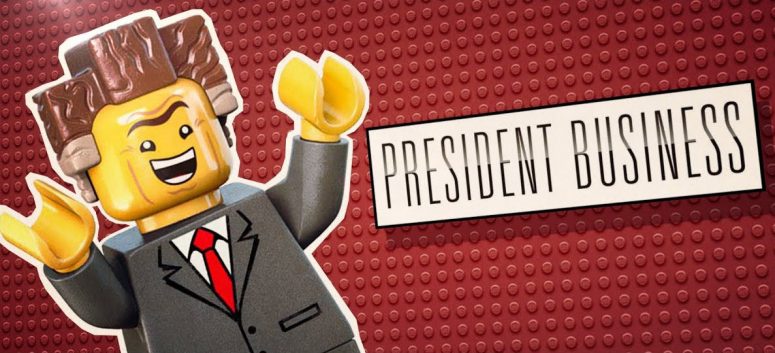
I was working with a client yesterday (Hi, Mike!) on some final edits of a publication-ready story. I really liked how the article turned out. But just as it was about to leave the door, Mike wanted to add the word “business” in front of “performance” in an early sentence, as in “business performance,” instead of just “performance.” I disagreed, because “companies” were the subject of the sentence, so the extra word wasn’t needed. That’s because most (if not all) readers will rightfully assume for-profit companies aren’t in the business of “philanthropic” performance or some other kind of performance. It’s all business all the time for them.
This isn’t the first time I’ve encountered keyword stuffing while working with clients. It certainly won’t be the last. While “search engine optimization” has made keyword stuffing worse, I believe there is another root cause of word stuffing. Executives, marketers, and copyrighters spend the majority of their week working hard to build and promote their products and services. For them, it’s very important work. So they often view the exercise of writing as the greatest, latests, and sometimes last chance to tell their story. So rather than let their sentences breathe and sound human, they try to add every extra word they can to get the story straight. Continue reading…

When it comes to great writing, practice will only get you half of the way. To really gain an understanding of how language currently works (and how it fails), we must read often.
That’s admittedly hard for many people. One in four of you reading this didn’t read a single book last year, according to Pew Research. And the 75% who did only reported reading “at least” one book in the last 12 months, so it’s unclear what the average number of read books per year is.
In my own life, I have friends that read over 100 books a year. And I have friends that read no books. I like both kinds, but I know the former are better writers (and often communicators) than the latter. Personally, I read a dozen books per year, in addition to a similar number of long-form articles each week (via Longreads and Digg).
Wherever you are, sometimes we forget the impact that regular reading has on effective writing. This is your reminder. As we head into the holidays and new year, I challenge each of you to read more often. If you need a recommendation, read my recently reviewed books, my own two books, and/or subscribe to the above. Not only will this make you smarter, it will make you a better writer.
Need help writing anything next year? If so, I know a really good guy. Thanks for reading.

Welcome to “Gutsy Writing” by Blake Snow—improve your writing in 5 minutes or less.
Several years ago, I was asked by a software director at one of the world’s largest technology companies to write a series of articles. He originally wanted me to explain the work his team was doing in a language that everyone understood. But as we talked further, he was having reservations about my breezy, informal writing style.
“Our audience doesn’t want to be talked down to,” he said, misinterpreting the point of clear writing, everyday speech, and simple words. “They take their work seriously, so the writing must use complex language and terminology.”
This was pure ego. Like some people, he needed big, technical words to feel good about the important work he was doing. And he was willing to sacrifice clarity, better readability, and greater reach to feel good about his highly technical job.
It was obvious I wasn’t a good fit, so I wished him luck in finding someone else. But my meetings with him underscored a cardinal rule that every novelist, journalist, and nonfiction writer adheres to:
Never use a long word where a short one will do.
If you can saying something with one syllable that can be said with two or more syllables, always use the shorter word. Your writing and readership will be better for it.
Need help writing this year? I know a really good guy. Thanks for reading.

Having written full-time for 16 years now, I’ve wanted to publish a free writing newsletter for sometime. This year I finally did it. SUBSCRIBE for free five-minute lessons every six weeks

The following comes from my self-mastery newsletter, which you can subscribe to here.
Being honest with others is hard enough, especially when it involves any embarrassing, compromising, or (heaven forbid) incriminating information. If honesty really is the best policy—which all behavioral psychologists agree with—then we will spend a lifetime trying to master this crucial, trust-building, but difficult skill.
If that wasn’t hard enough, I’ve got some more uncomfortable news for you: being honest with yourself might be even harder. That’s because we often lie to ourselves for extended periods of time about the person we really are, so we don’t have to confront the parts of ourselves that we don’t like.
That explains why so many people delude themselves or live in denial. If we are close to perfection or blameless in our own mind’s eye, then we don’t have to change. We just need to wait for others in the world to change for us. This, of course, is a recipe for stagnation. Not to mention loneliness, depression, and remorse.
Heavy stuff, I know. But I have some good news. All of us can learn to be more honest with ourselves and others, even if we were raised around bad examples of both. Granted, doing this is a life-long endeavor, but we can all increase momentum and hasten our own awesomeness by practicing the following: Continue reading…
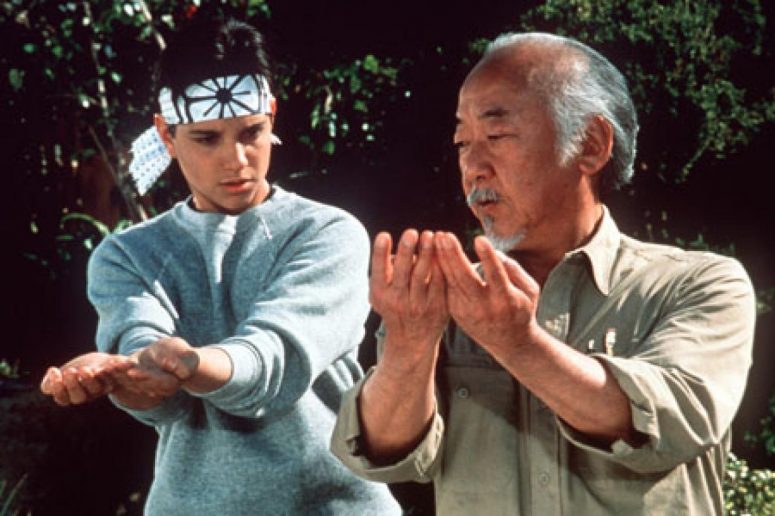
The following comes from PowerSpace, the self-mastery newsletter I co-founded:
There is a great, if slightly oversimplified, scene from Karate Kid II in which the protagonist laments to his calming sensei that his life is out of balance after getting dumped by his girlfriend and wrecking his car the night before. To help him quickly move to the present, the beloved Mr. Miyagi encourages his devoted student “Daniel San” to deliberately concentrate on his breathing.
“When you feel life is out of focus, always return to basic of life: breathing,” the master says. “No breathe, no life.” From there he instructs both the protagonist and viewers to inhale deeply and slowly from the nose. Followed by exhaling deeply and slowly through their mouths several times while using both hands as a guide to the inward and outward exercise.
Afterwards, Daniel returns to work and drives a nail into a two-by-four with a single thwack! Continue reading…
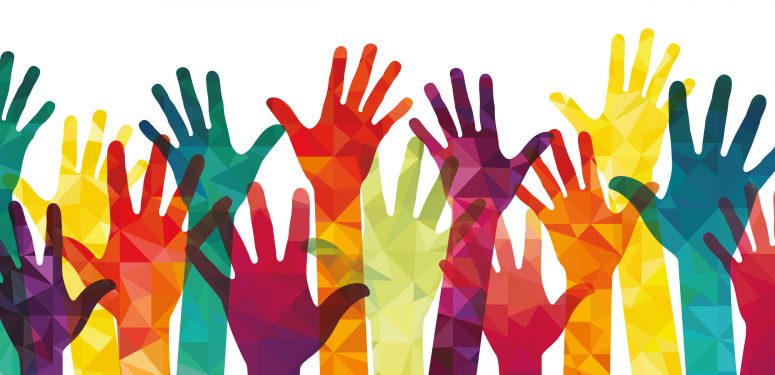
Courtesy Shutterstock
The following sample lesson come from my employee training curriculum, Power Space.
No one disputes the overwhelming evidence that volunteering does wonders for our self-worth and happiness. Giving, it seems, really is better than receiving when it comes to how we feel about ourselves and the greater world we live in.
But the power of service doesn’t just begin and end with our own improved happiness. In fact, when we feel better about ourselves, we are much more likely to contribute, collaborate, and ultimately work at maximum capacity, research shows.
This is due to several reasons: Continue reading…
 Earlier this month, I received one of the nicest reader emails ever. With his permission (and edited for clarity), I share the letter in the hopes that it might inspire someone else:
Earlier this month, I received one of the nicest reader emails ever. With his permission (and edited for clarity), I share the letter in the hopes that it might inspire someone else:
Hi Blake. I want to let you know how great an impact your book Log Off had on my life.
You see, I was overwhelmed, unable to focus, distracted, and constantly tired. I kind of knew the source of it all, but was unable to express it, even to myself. Now, thanks to you, I have changed my relationship with technology, and my life is increasingly better.
A few things about me: my name is Mauricio Munoz. I am 48 year-old dentist from Bogota, Colombia. I love technology. I really like the internet and all the possibilities and access to information and communication that it entails.
I love devices like smartphones, but I realized, after reading your book, that I was addicted to those things. I was completely dominated by the dopamine fix that those devices and connectivity gave me. Now I feel much better. Thanks a lot, man.
Here are some major changes I’ve made:
- Now I use a dumb phone. My office has a smartphone managed by my staff, but it’s only used for business.
- I do own a smartphone, but I use it with no sim card. Like a tablet mostly for online banking, communication with family overseas, and for its very good camera. But I don’t carry it with me all the time, and sometimes I don’t use it at all for weeks.
- I still use a first-generation iPad for reading books.
- I have other laptops and desktops around, but I only use those on a need-to basis now.
- I enjoy my free time with my family and myself more. I like my work more, too, and feel more present in every moment.
Thanks, Blake. Great work—your book changed my life.
Mauricio, muchas gracias for reading my book and saying so. I’m thrilled it had a positive impact and am humbled by your kind words. I hope to shake your hand in Bogota someday.
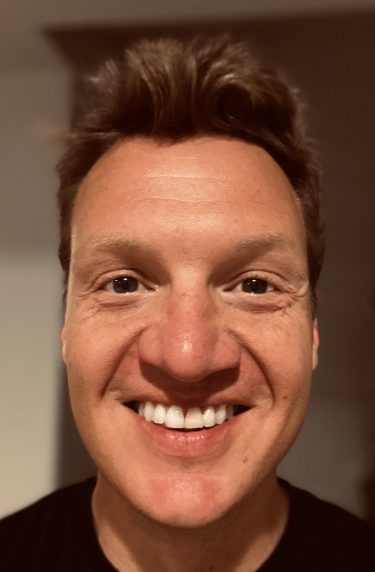 I was recently interviewed by Metro International, the world’s largest free daily newspaper, about my book. This is what I said and thought you might enjoy:
I was recently interviewed by Metro International, the world’s largest free daily newspaper, about my book. This is what I said and thought you might enjoy:
In your book description you say that excessive “internetting,” smartphoning, and social media make us miserable, Why do you think that?
That’s not my opinion. There’s an overwhelming amount of research that proves that virtual socialization is no substitute for the real thing. In fact, it’s even worse since infinite scrolling on screens is either curated highlights that make our own average lives feel worse by comparison, or endless online news that make the world sound a lot more worse and scary than it really is.
In this connected world, do you think you can really manage to live disconnected? How?
As outlined in my book, not only can we successfully disconnect, we can thrive more offline when we find a good balance of it. Smartphones, the internet, and social media aren’t all bad. But they can be if we allow them to be. The trick is setting boundaries in ways that allow them to work for us instead of letting them interrupt and dictate our everyday lives. Continue reading…

When I first started writing my book Log Off, I was surprised by the lack of research on excessive smartphoning, internetting, and social media. While there was some (mostly negative), there are still a lot of unanswered questions on how the behavior affects the quality of life in both children and adults.
To that end, I’m launching a nonprofit research foundation this year to study, promote, and lobby for the real-life effects plaguing so many. In the coming months, I hope to start conducting national surveys and educating the public beyond what my book started.
Until then, here’s a roundup of the most concerning research to date:
Continue reading…
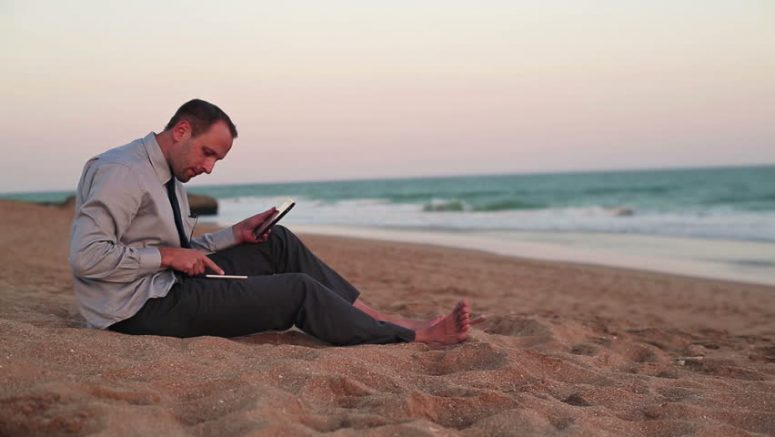
Courtesy Shutterstock
More than 80% of American adults own a smartphone, reports Pew. Consequently, an equal number are more than capable of conducting office work at all times of day and from anywhere.
Because of this, a concerningly large number of employees voluntarily work on vacation, nights, and weekends. It’s so easy that many of us simply fall into bad habits, thinking that the act will get us ahead.
In truth, it doesn’t. Here’s why working on vacation is a bad idea, according to the overwhelming research contained in my book, Log Off: How to Stay Connected after Disconnecting. Continue reading…
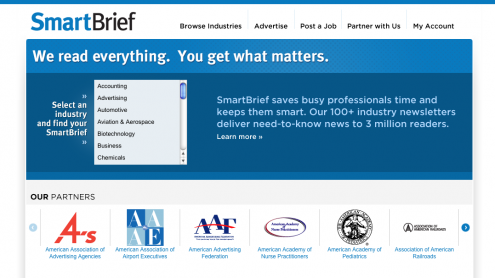
When I first discovered RSS, I went crazy. I subscribed to more than 400 feeds out one time. Ridiculous. And even though I’ve since reduced that number to a mere 40, I’m still inundated with repurposed, rehashed, and regurgitated information. Why can’t someone just point me to the good stuff?
Actually, someone can. At least as it pertains to business and technology headlines. They’re called Smart Brief. They claim to “read everything” so “you get what matters.” And after a week of subscribing to their various newsletters, I can honestly say they deliver on their promise.
As a result, I’ve unsubscribed to even more feeds. Now if only Smart Brief covered more consumer areas, I might be able to relegate my Google Reader to personal feeds only.








 Earlier this month, I received one of the nicest reader emails ever. With his permission (and edited for clarity), I share the letter in the hopes that it might inspire someone else:
Earlier this month, I received one of the nicest reader emails ever. With his permission (and edited for clarity), I share the letter in the hopes that it might inspire someone else: I was recently interviewed by
I was recently interviewed by 

